
【A group photo of participants at the Taiwan-Japan Exchange Meeting on Solutions to the Shortage of Medical Care Workers, Birth Rate Decline, and Elderly Care】
The STUST Youth and Elderly Co-creation USR Project team, working together with Fuleduo and Fusheng Environmental Living Alliance as an industry-university collaboration, recently held the Taiwan-Japan Exchange Meeting on Solutions to the Shortage of Medical Care Workers, Birth Rate Decline, and Elderly Care. In response to the arrival of Taiwan's super-aged society in 2025, the meeting addressed the issue of social care labor shortage, aging of employees, poor service quality, and human resource management. This meeting particularly invited Representative Director Kako Shimomoto and her Japanese professional team of Nachular Heart Furcher, General Manager Jun-ming Tsai of Fuleduo Enterprise Co., Ltd., Prof. Kazufumi Toda of Biwako Professional University of Rehabilitation in Japan, Director Hui-juan Shie of Guanmiao Daycare Center of A Kernel of Wheat Foundation,Chief Operating Officer Tian-wan Lin of Guangtsi Long-term Care Association-affiliated Yilan County Private Da'an Comprehensive Long-term Care Institution, Chairman Arakawa Yasushi of Kochi County Home Care Workers Liaison Association, Director Shing-zhong Su of Beunen Foundation, Deputy Director Ya-chian Chen and Therapist Wei-jia Liu of New Taipei City Aiwei Nursing Center managed by Catholic Yonghe Cardinal Tien Hospital, Deputy Executive Director Yi-zhuang Zhu, Director Chun-lin Huang of the Down Syndrome Foundation of the Republic of China, Representative Director Fukushima Hisamichi of Kochi Home Care Association, and other industry experts who came together to share their practical experiences. The event was opened by Representative Director Kako Shimomoto, followed by a series of sharing and exchanges.
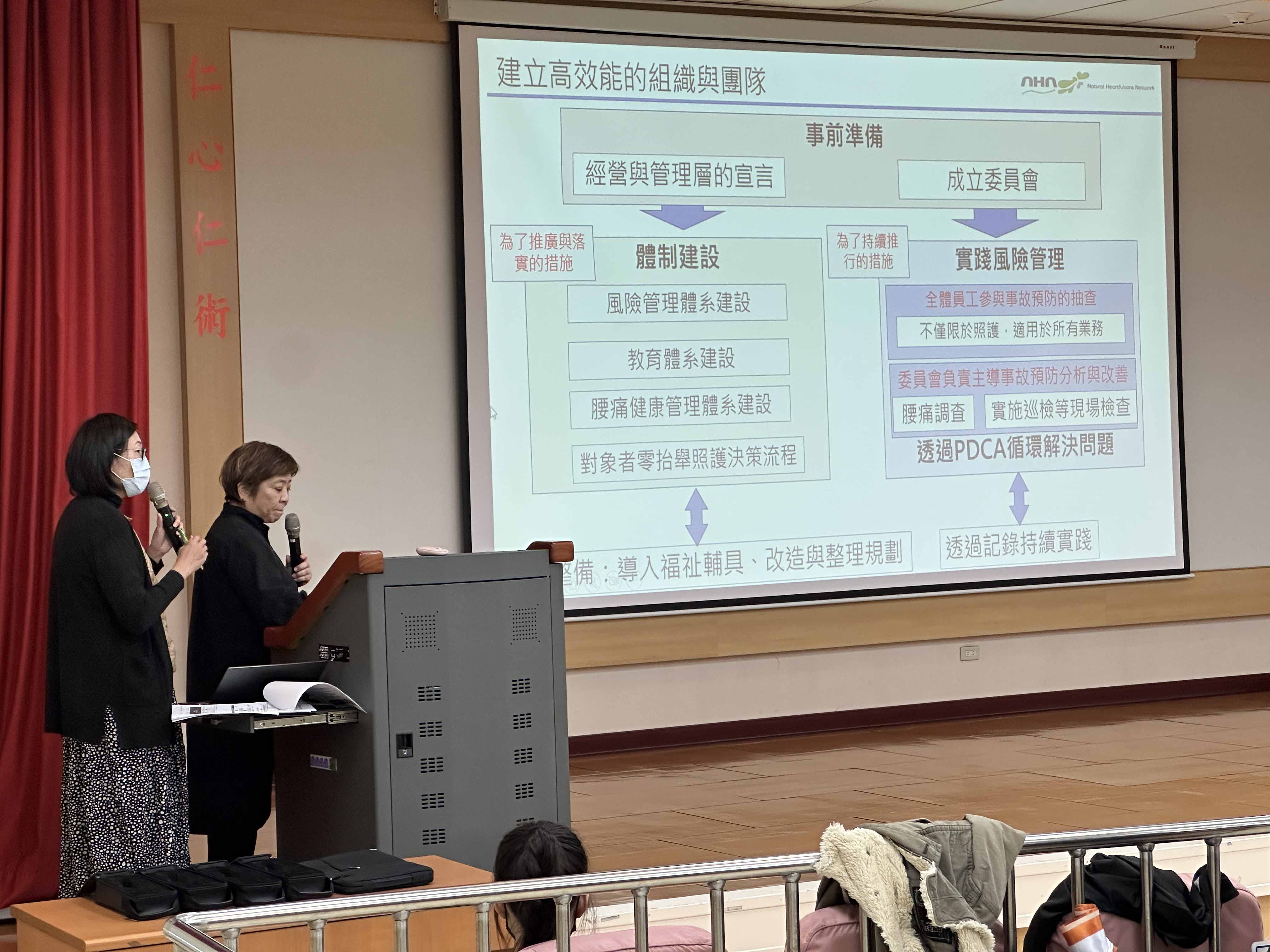
【Representative Director Kako Shimomoto was sharing Japan’s organizational experience in promoting the Nature Conservation Act to address the problems of declining birthrates and labor shortages】
At the beginning of the meeting, Representative Chairman Kako Shimomoto pointed out that Japan had been promoting elderly care, but there was no awareness of preventing occupational injuries among caregivers. This led to a very high rate of back injuries among caregivers, which in turn led to a decline in the quality of care for the elderly and problems with attendance management. This prompted Japan to begin focusing on the integration of natural care zero-lift and institutional care systems to reduce occupational injuries. This promotion has had significant results in Japan, and Taiwan will face the same problem as Japan. It is hoped that Taiwan will not make the same mistakes by learning from Japan's experience. In addition, Director Mei-zhu Chen, the host of the Youth and Elderly Co-creation USR Project at STUST, General Manager Jun-ming Tsai of Fuleduo, and Director Hui-juan Shie of A Kernel of Wheat Foundation also shared how USR, CSR, and NPO can work together to promote, practice, research, and verify the effectiveness of natural care zero-lifting in reducing occupational injuries of care workers in our country's care institutions.
In the second half of the sharing session, other domestic and international industry experts shared their practical results in promoting the care field and the response strategies proposed by Japan in the face of declining birthrates. General Manager Jun-ming Tsai said that based on the experiences shared by industry experts, promoting natural care to reduce occupational injuries among caregivers is something Taiwan needs to do as soon as possible. Attention should also be paid not only to technical improvements but also to the multi-faceted integration of buildings, equipment and props, and management system arrangements in order to truly and effectively improve the safety of the labor environment for elderly care in Taiwan, increase retention rates, and alleviate the crisis of labor shortages.
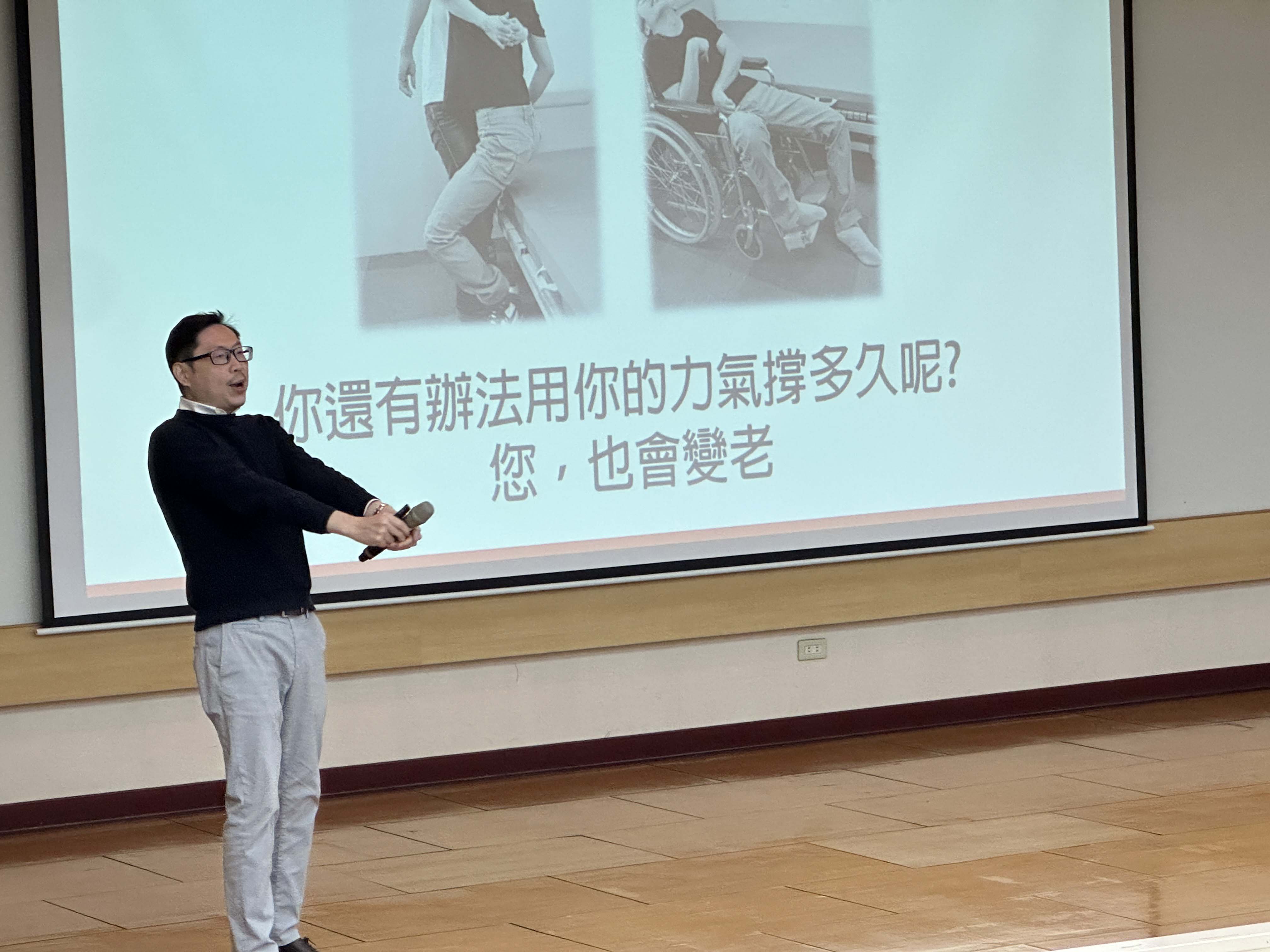
【General Manager Jun-ming Tsai of Fuleduo was demonstrating the most common actions that cause occupational injuries during care.】
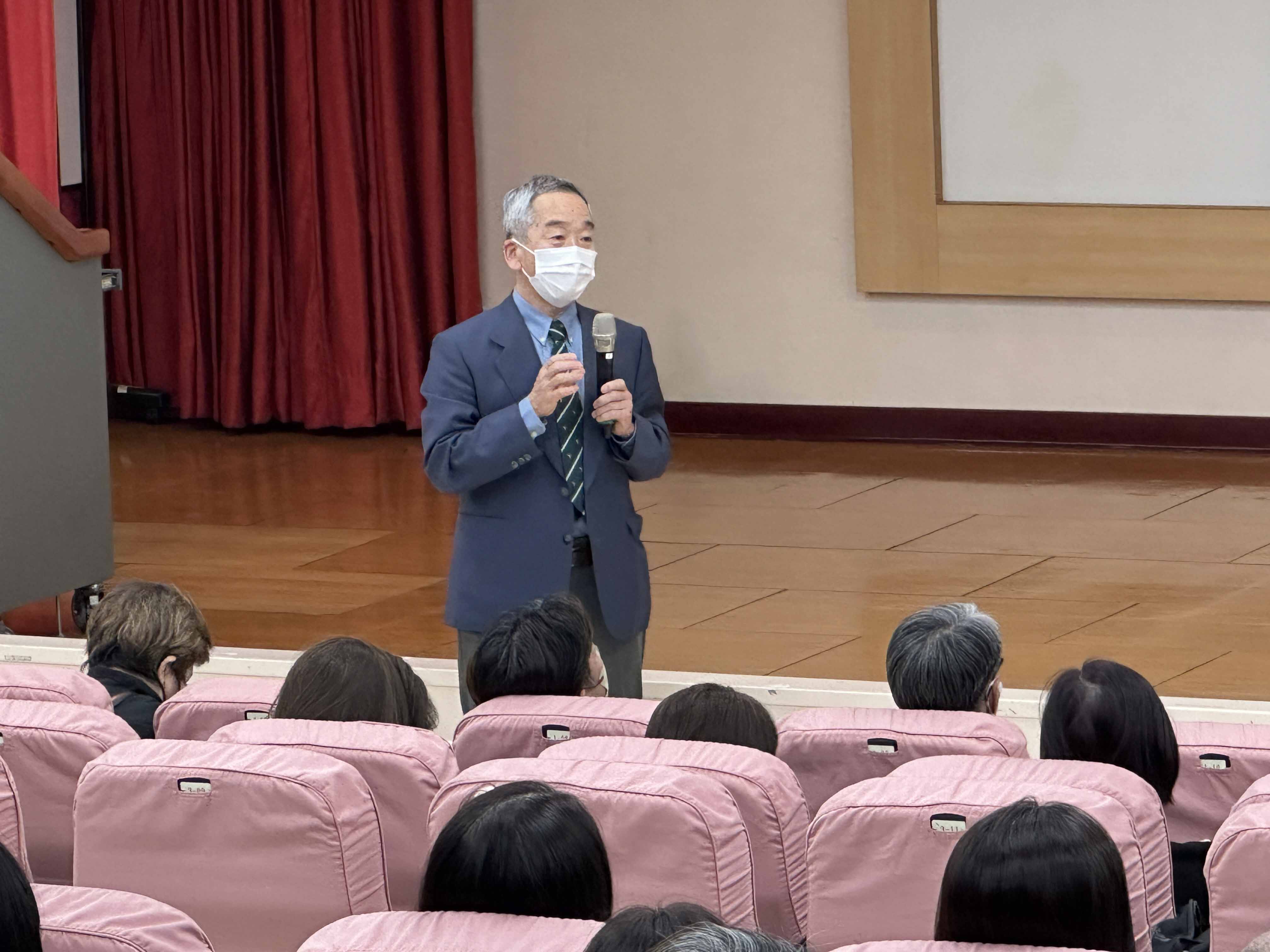
【Professor Kazufumi Toda of the Department of Rehabilitation at Biwako Professional University of Rehabilitation was responding to questions from the public regarding the safety of the working environment for elderly care workers.】
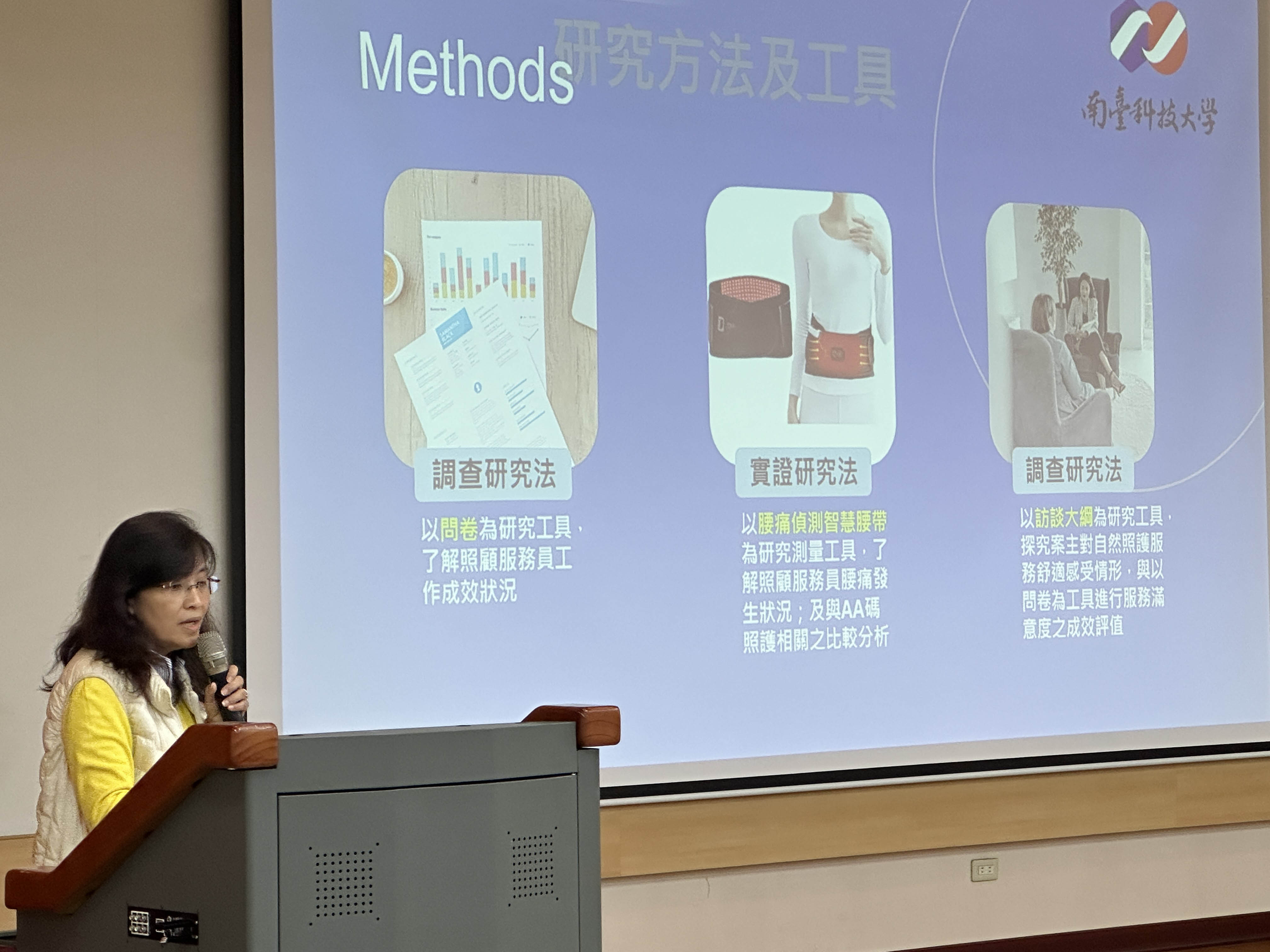
【The host of the STUST Youth and Elderly Co-creation USR Project, Mei-zhu Chen, was sharing the application results and promotion organization and advocacy process of the project-related nature care methods.】
Mei-zhu Chen, Host of the Youth and Elderly Co-creation USR Project, said that in addition to allowing the relevant long-term care practitioners participating in the sharing session to realize the importance of preventing occupational injuries as early as possible, this sharing session also allowed everyone to know how industry, government, academia, and research can cooperate and leverage each other's expertise on this issue, master the verification of natural care zero-lift and the effectiveness of the implementation of related optimization plans, so that Taiwan can be prepared to face the trend of declining birthrates and labor shortages, and solve the dilemma of elderly care in the community. It is hoped to improve the quality of long-term care services in Taiwan, prepare for a super-aged society, allow caregivers to feel more at ease and safe at work, and enable the elderly being cared for to have a happy, healthy, and dignified old age.
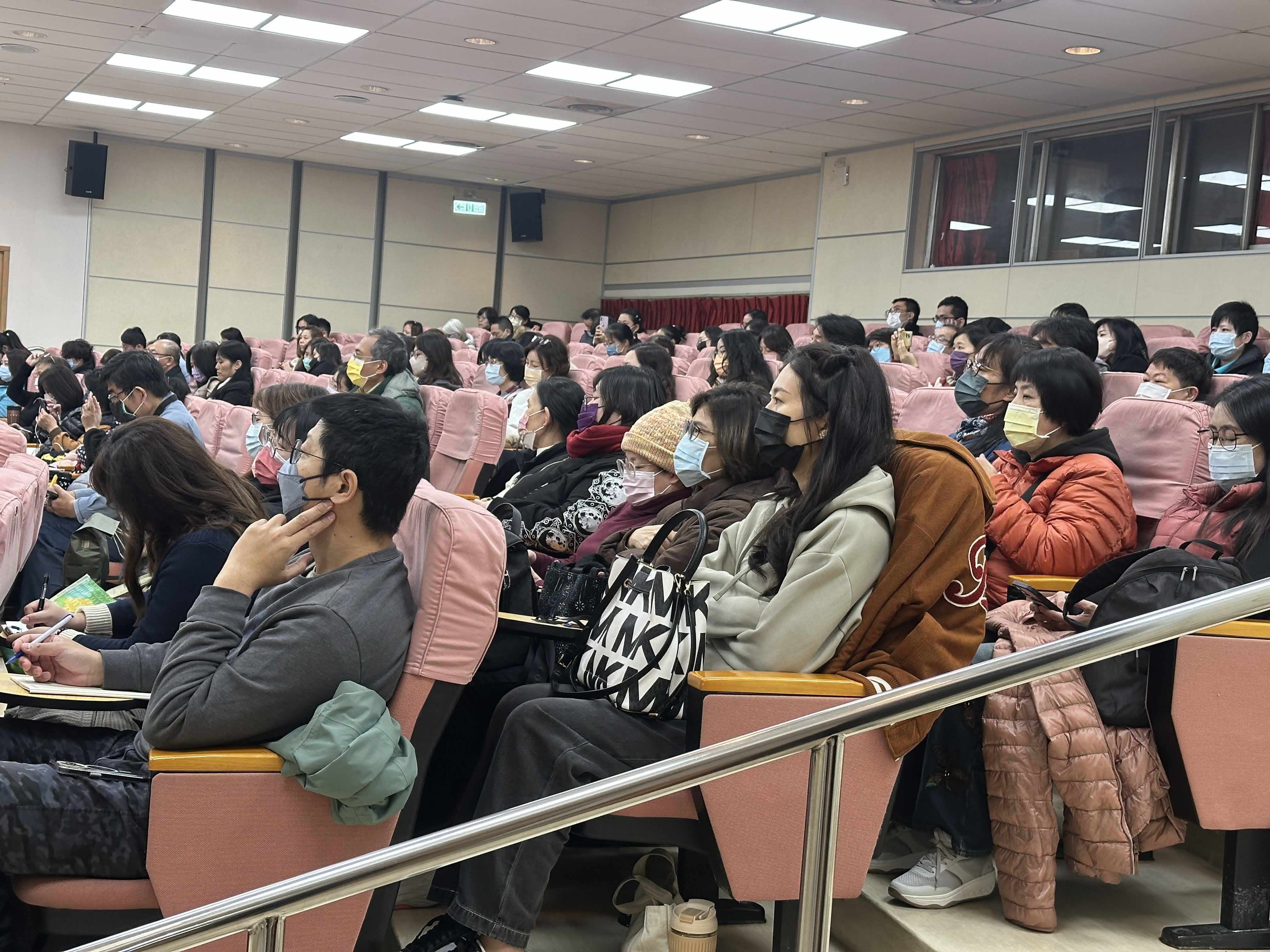
【The Taiwan-Japan Exchange Meeting on Solutions to the Shortage of Medical Care Workers, Birth Rate Decline, and Elderly Care attracted enthusiastic registration, with participating students paying great attention in the meeting.】